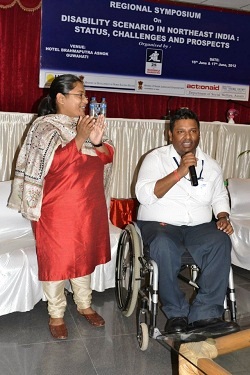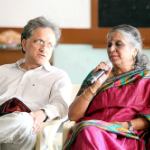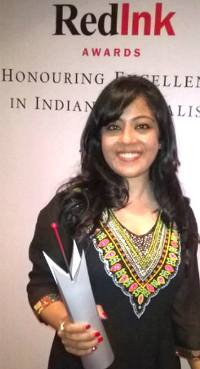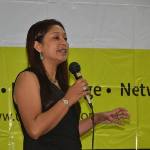A while back (a very long while now) I got to moderate a panel that discussed how to leverage ICTs (Information Communication Technology) for women’s empowerment. Organized through the American Center and the Digital Empowerment Foundation, my panel convened speakers from Bangladesh, Sri Lanka and India.
One of my takeaways: tech isn’t inherently inclusive. The distribution of technology follows established cultural paradigms. Consider this statement from a survey of gender disparity in online access “ITU is also worried about a growing gender gap in the mobile Internet usage. Its report says there are currently 200 million fewer women online than men, and warns that the gap could grow to 350 million within the next three years if action is not taken. (emphasis mine)”
In other words, without some sort of remedy, technology might actually exacerbate the gendered division of power in many countries. A friend of mine from DEF, who has done work with NGOs in rural areas, says that it’s very common for men to own and monopolize mobile phones. Women are granted access at certain pre-approved times, if at all. In November 2010, the Indian Express carried a story about a khap panchayat in India that banned mobile phones for unmarried girls, saying that these devices may encourage girls to “[elope] with their lovers.” Such behavior hasn’t ceased – similar stories surfaced in 2011, and again in 2013 in Haryana. The women most in need of options and empowerment are those to whom the inclusive benefits of technology are most likely to be denied. Hardly surprising.
The pattern of denial continues across social classes. The report goes on to note: “Professionals with computer science degrees can expect to earn salaries similar to doctors or lawyers – yet even in developed economies, women now account for fewer than 20 percent of ICT specialists.”
Our panel didn’t spend much time talking about the roots of technological disenfranchisement. One speaker, however, shared an interesting case study: she’d worked on an intervention in Bangladesh that trained rural health workers to use laptop computers as part of field work. Initially, she said, the largely rural and female workers rebelled. They were afraid they wouldn’t understand the technology. This initial hesitation was a learned cultural reaction, not a measure of inherent ability. The NGO workers pressed on, and by the end of their session, all the women had started using the laptops and carrying them on their assignments. The fact that these women showed up with computers meant that they were treated as authorities by the communities they worked in, in ways they hadn’t been before.
Across countries and social classes, women are discouraged from infringing on male geek territory – whether it’s computer science or hedge fund management. And make no mistake: we’re not talking about “lack of desire” – it’s a matter of women being actively discouraged from competing with men for social power. The reaction of the Bangladeshi health workers to computers reminds me of Indian girls’ reaction to engineering (women make up some 10% of the entering class at the IITs every year). Stories are like this are why I object so strongly to people who suggest that our baseline assumption should be that women aren’t interested in or qualified for analytical or technical careers.
I’m looking at empowerment from a purely devices perspective, but it’s also worth asking whether a larger percentage of women logging on (for example, through Google’s recent initiative to train Indian women in how to use the Internet) will create a larger market for information about maternal and child care, or for information in regional languages. The variety and type of content they demand is almost certainly going to be very different from what men have been searching for thus far.







































